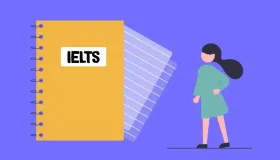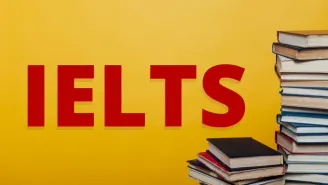The Pursuit Of Knowledge Reading Answer Passage
The Pursuit Of Knowledge Reading Answer Passage
Paragraph A. According to the great English lexicographer Samuel Johnson, knowledge is of two kinds. We know a subject ourselves, or we know where we can find information upon it (Boswell Life vol. 2 p, 383 18 April 1775). In the information-driven world we now inhabit, the latter has assumed a much greater level of importance.
Paragraph B. At the time of the European Renaissance, which spanned the fourteenth, fifteenth and six-teenth centuries, it was considered possible for the educated, well-read man, the so-called Renaissance man, to possess the sum total of human knowledge. Admittedly, the body of knowledge then available was restricted, being held firmly in check by several important factors: the paucity of books in circulation at that time, the difficulty of acquiring copies of the texts, the need to copy texts by hand, and the cost of doing so. The example of Lupus of Ferrieres’ search for the Arsrhetorica of Fortunatus in the ninth century was repeated again and again throughout the Latin West until the momentous advent of printing in the middle of the fifteenth century. Printed books saw the end of some of the practical limitations placed on the spread of human knowledge. The first revolution in Information technology had begun.
Paragraph C. Renaissance man was rapidly left behind by this development; and, henceforth, it would be increasingly difficult for the educated man to cope with the expansion of knowledge that flowed through Europe via the medium of movable type. In today’s world, the scenario could hardly be more different. The most well-read individual, whom we could legitimately call information man, or homo sapiens, would certainly be considerably more knowledgeable than Renaissance man, Yet, because of the ever-expanding increase in the sum total of human knowledge over the latter half of the last millennium, and the changes in the world of technology, easy access to information has reduced the stature of the educated individual. All that he can hope to be now is an expert in a narrow field, not the all-knowing polymath of yesteryear.
Paragraph D. It is not surprising to see people overwhelmed by the unlimited stream of Information. There is simply too much of it to assimilate, and it is difficult to know what to do with the data once it is received; which brings us back to Johnson’s words. But we need to add another dimension to his dictum, one which was probably true in his time, but is even more pertinent today: people need to be able to live the knowledge they acquire and not just know it or know where to find it. Our deficiency in this regard is, perhaps, the most singular failure of the modern information age.
Paragraph E. Acquisitiveness is a natural human instinct. Children collect cards of footballers, or whatever is the latest fad. Stamps, coins and books are targets for children and adult collectors (dike, as their basic instincts are played upon and nurtured by market forces. The desire to gather knowledge is nothing new. What is astonishing, however, is the way in which people treat the knowledge they have collected. It is as if the collection were an end in itself, and herein lies the great deception, We have turned the world into a large machine of information, a veritable vortex into which we are all being Inexorably sucked, People beaver away amassing raw data, labouring under the misapprehension that they are doing something worthwhile when all that is really happening is the movement of information from one place to another, We should hardly be surprised that, as this becomes apparent, disillusionment and stress in the workplace are becoming sadly the all too common consequences.
Paragraph F. The world is not really richer for having the current wealth of knowledge at its fingertips. It is like standing amongst the wealth of the British Library, the Bibliothèque Nationals in Paris or other great libraries and not being able to read. So what is to be done? Training in collecting and processing relevant information, followed by learning to collate, analyse and select or discard, is the obvious solution, but there is such a dearth of people who know what to do that one remains pessimistic.
Let’s explore the questions and answers of The Pursuit Of Knowledge reading answer passage.
The Pursuit Of Knowledge Reading Answers with Sample Questions
Have you read the passage? Now, take the test and find the The Pursuit Of Knowledge Reading answers! Try to answer these questions by yourself before you sneak a peek at the answers given below.
Check Out Top 65+ IELTS Reading Practice Test Questions with Answers
Below are some top 65+ free IELTS Reading Practice test online questions with detailed answers to enhance your IELTS preparation online. We have provided sample passages for each test type for your reference.
- What Is Exploration Reading Answers
- Effects Of Noise Reading Answers
- The Discovery Of Baby Mammoth Reading Answers
- The Dead Sea Scrolls Reading Answers
- The Ring-Tailed Lemur Reading Answers
- Why We Need To Protect Polar Bears Reading Answers
- Nutmeg A Valuable Spice Reading Answers
- What Is Meaning Reading Answers
- Cutty Sark Reading Answers
- The Step Pyramid Of Djoser Reading Answers
- South Pole Adventurer Reading Answers
- The Future Of Work Reading Answers
- Ambergris Reading Answers
- Trees In Trouble Reading Answers
- Could Urban Engineers Learn From Dance Reading Answers
- The Flavour Of Pleasure Reading Answers
- The Value Of A College Degree Reading Answers
- Why You Should Delegate Tasks To Team Members Reading Answers
- Corporate Social Responsibility Reading Answers
- Forest Management In Pennsylvania USA Reading Answers
- Making Time For Science Reading Answers
- The Power Of Play Reading Answers
- Coastal Archaeology Of Britain Reading Answers
- How The Other Half Thinks Reading Answers
- Changes In Reading Habits Reading Answers
- The Forgotten Forest Reading Answers
- When Conversations Flow Reading Answers
- Attitudes Towards Artificial Intelligence Reading Answers
- The Ingenuity Gap Reading Answers
- A Bar At The Folies Reading Answers
- Booking A Wessex Cottages Holiday Reading Answers
- Sunset Tours Reading Answers
- Bird Migration Reading Answers
- Clutter Bugs Beware Reading Answers
- The Hidden Histories Of Exploration Exhibition Reading Answers
- Calisthenics Reading Answers
- Having A Lovely Time Reading Answers
- The Return Of Huarango Reading Answers
- Summer Activities At London Kew Gardens Reading Answers
- Computer Games For Preschoolers Reading Answers
- Extinct The Giant Deer Reading Answers
- Micro Enterprise Credit For Street Youth Reading Answers
- Plain English Campaign Reading Answers
- Glow Worms Reading Answers
- How To Prepare For An Interview Reading Answers
- Quiet Roads Ahead Reading Answers
- Sculpture Reading Answers
- Cornwall Reading Answers
- Latchkey Children Reading Answers
- Healthy Intentions Reading Answers
- Makete Integrated Rural Transport Project Reading Answers
- Allergy Testing Reading Answers
- Life Casting And Art Reading Answers
- Metropolis Movies Reading Answers
- The Bridge That Swayed Reading Answers
- The Discovery Of Uranus Reading Answers
- The Extraordinary Watkin Tench Reading Answers
- The Secret Schizoid Reading Answers
- The Sun A Mixed Blessing Reading Answers
- UK Companies Need More Effective Boards Of Directors Reading Answers
- Why Does Skin Wrinkle In Water Reading Answers
- Cleaner Abundant Ielts Reading Answers
- Crop Circle Reading Answers
- E Learning Reading Answers
- Leisure Time Reading Answers
- Talking Point Reading Answers







